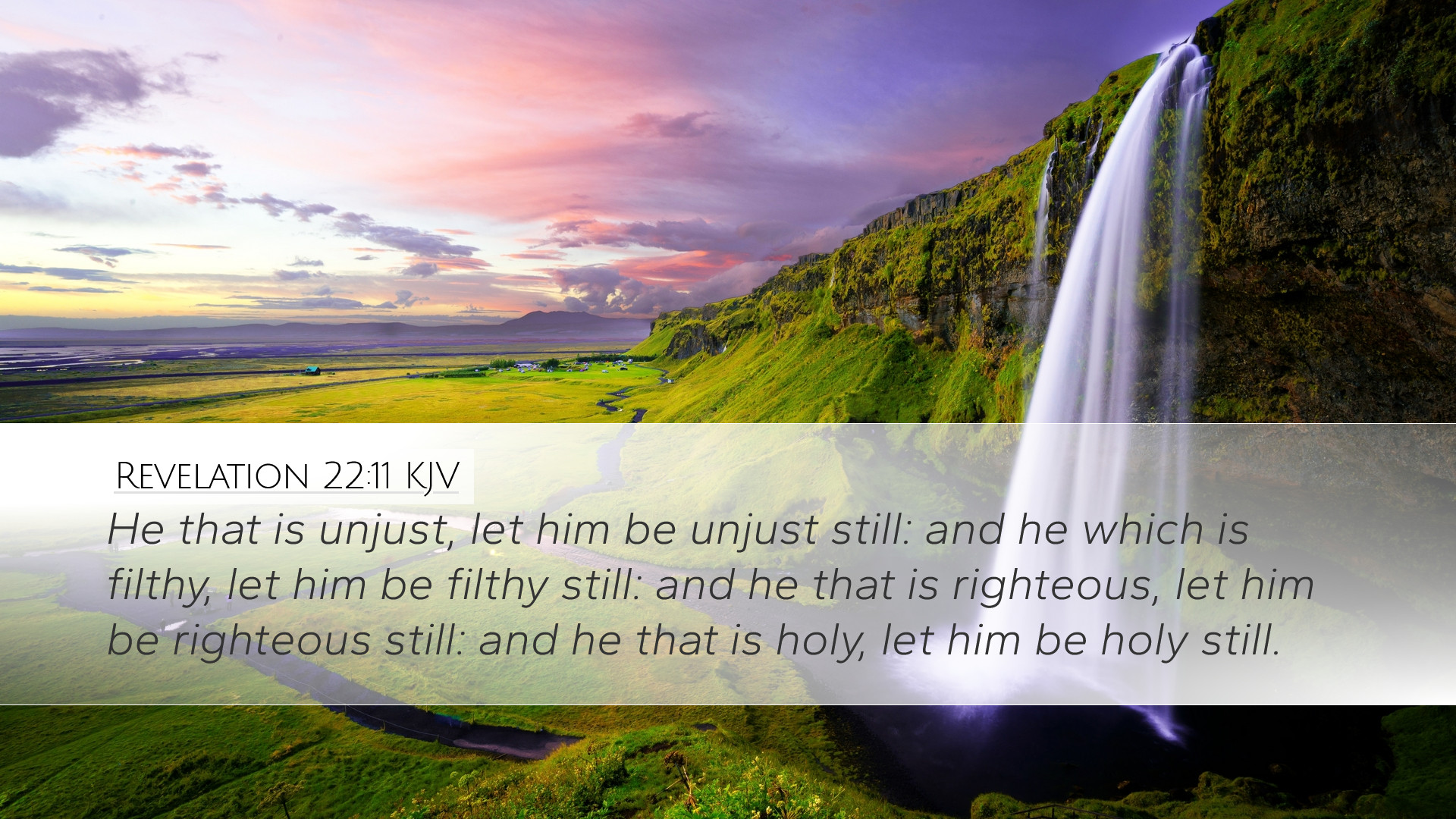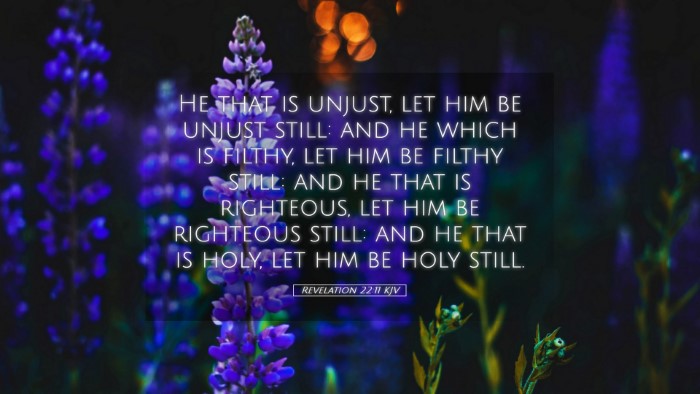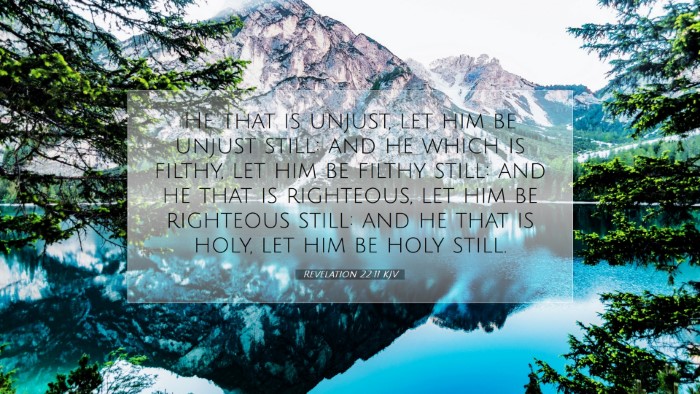Commentary on Revelation 22:11
Revelation 22:11 states: "He who is unjust, let him be unjust still; he who is filthy, let him be filthy still; he who is righteous, let him be righteous still; he who is holy, let him be holy still."
This verse encapsulates a profound theological message regarding human nature, divine judgment, and the finality of one's moral and spiritual state at the end of time.
Overview and Context
The concluding chapter of Revelation serves as a penultimate conclusion to the entire prophetic book. It is characterized by both warning and reassurance. The solemn nature of Christ's return and the final judgment poses critical reflections on the human condition and the state of one's soul.
Insights from Public Domain Commentaries
Matthew Henry's Commentary
Matthew Henry emphasizes the serious implications of the moral state of individuals at the time of Christ's return. He notes that this declaration highlights the certainty of God's justice and the permanence of one's chosen way in this life.
The righteous and the unrighteous are marked not only by their actions but by their chosen paths:
- Finality of Choices: Henry argues that in the eternal state there is no possibility of change; a person solidifies their moral standing by their choices in life.
- Warning and Encouragement: This verse serves both as a warning for the wicked and a comfort for the faithful, who are assured that their righteous choices will endure.
- Reflection of Divine Justice: It reflects God's justice—there is a reward for righteousness and a consequence for unrighteousness.
Albert Barnes' Commentary
Albert Barnes provides a more analytical look at the implications of this verse. He interprets it within the surrounding context of Revelation where the final judgment is presented. His observations include:
- Certainty of Character: Barnes asserts that this verse highlights an immutable aspect of human character. Those who choose evil remain in that choice, and this represents the nature of free will as exercised by humanity.
- Call to Perseverance: The admonition to remain in one's righteousness serves to call believers to steadfastness, ensuring that they continue in their moral integrity regardless of worldly temptations.
- Dichotomy of Existence: Barnes emphasizes the stark division between the righteous and the unrighteous, a theme prevalent throughout scripture, reminding readers that moral lines are clearly drawn.
Adam Clarke's Commentary
Adam Clarke brings a rich theological insight that illuminates the spiritual significance of Revelation 22:11. He articulates:
- Transformation and Confirmation: Clarke discusses how this verse relates to transformation in Christ. Although the verse seems deterministic, he posits that it affirms the transformative power of salvation—freeing the believer from their past ways.
- Moral Integrity: Clarke emphasizes the need for moral integrity in light of the coming judgment. He suggests that righteousness must not only be a one-time act but a continuous state of being.
- Enduring Nature of Divine Judgment: The verse’s repeated use of "let him be" serves as a reminder that God’s ultimate judgment is unwavering, establishing a divine order that must be respected and acknowledged.
Theological Reflections
The implications of Revelation 22:11 extend into various theological areas. The themes parallel ongoing discussions in soteriology, eschatology, and ethics:
- Soteriology: It raises questions about salvation and perseverance. What does it mean to remain righteous? How does this align with the grace of God?
- Eschatology: The understanding of this verse enriches the discourse about the end times—what does it mean for the unjust and the righteous at the final judgment?
- Ethics: The verse challenges believers to consider their daily lives and moral choices, urging them to live in a manner consistent with their faith.
Conclusion
Revelation 22:11 is a solemn yet inspiring reminder of the enduring choices individuals make in their lives. It serves pastors, students, theologians, and Bible scholars as a profound reflection not only on the finality of God's judgment but also on the established moral fabric of existence, urging all to pursue a path of righteousness and holiness amidst a world often characterized by unrighteousness and moral decay. The integration of insights from esteemed commentators like Matthew Henry, Albert Barnes, and Adam Clarke provides a rich tapestry of understanding for those seeking a deeper engagement with scripture.


